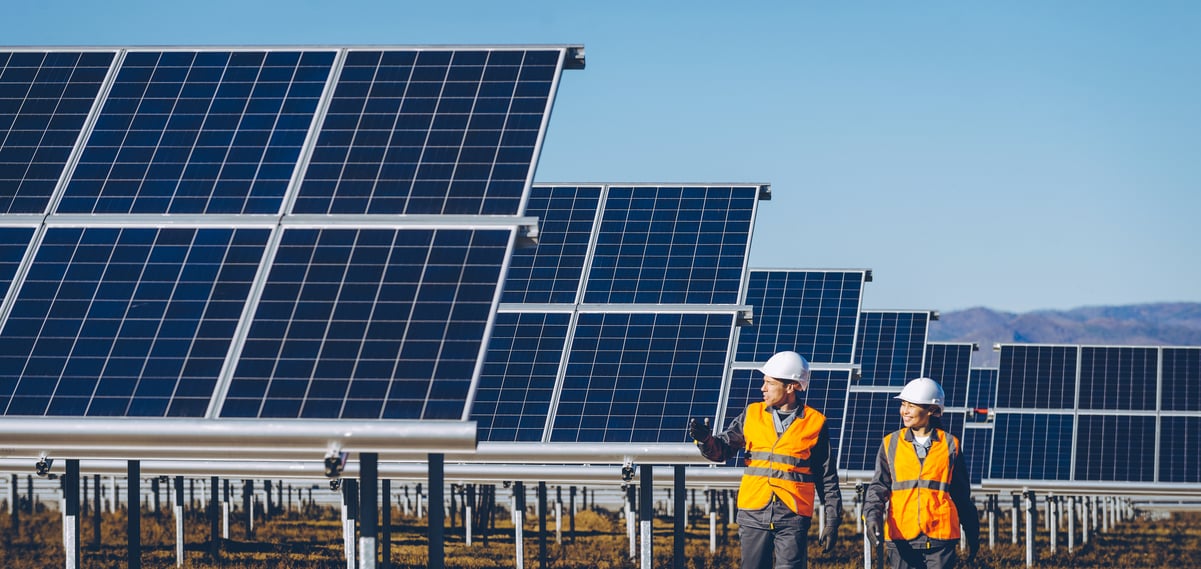First Solar (FSLR +1.98%) has been trying to stay ahead of the rest of the solar industry for more than a decade. It's one of just a few companies to maintain profitability through the financial crisis, and one of only a handful posting a profit today.
But even a profit won't cover up the fact that competitors are closing in fast. First Solar's less efficient modules aren't appealing to growing residential and commercial markets, and 500 MW projects are harder to come by than they used to be. This poses challenges for the company, and it's a major reason why the stock percentage is down double digits today.
The numbers
On the surface, the fourth quarter doesn't seem terrible. Revenue came in at $1.08 billion, below the $1.34 billion analysts expected, but with systems composing a large amount of revenue, it can be lumpy at times. On the bottom line, the company earned $2.04 per share after taking out restructuring charges, well ahead of the $1.75 bar Wall Street had set.
The major concern is that efficiency and cost per watt simply isn't on the trajectory it needs to be on for First Solar to maintain its manufacturing might. Cost per watt fell just $0.05 over the past year to $0.68, which is in line with what Chinese manufacturers are now selling panels for. Efficiency was up 0.7% to 12.9%, but with Chinese manufacturers exceeding 15% efficiency at the same cost, and SunPower (SPWR +0.00%) now selling 21% efficient panels, the company is falling behind.
The technology gap is especially troubling. GT Advanced Technologies (NASDAQ: GTAT) is launching new equipment this year that will boost the efficiency of silicon panels past where thin film would continue to be relevant. First Solar is using technology that was ahead of its time in 2004, but today it's behind the times and the numbers are starting to bear that out.
Systems not keeping up
The biggest shocker is that First Solar's systems business hasn't replenished its pipeline in 2012. Shipments were 1.4GW for the year but bookings were only 1.1 GW. Revenue for systems and third-party modules were $3.4 billion, but only $2.0 billion was booked during the year.
First Solar's bread and butter is its systems, and if it can't find enough big systems to install around the world then its business is in rough shape. I don't think the module business will be around in five years without a revolution in technology; systems will keep the company alive. Right now, it looks like the next few years will be a rough transition for First Solar from module maker to systems installer using someone else's panels. That's why investors are running for the hills today.






